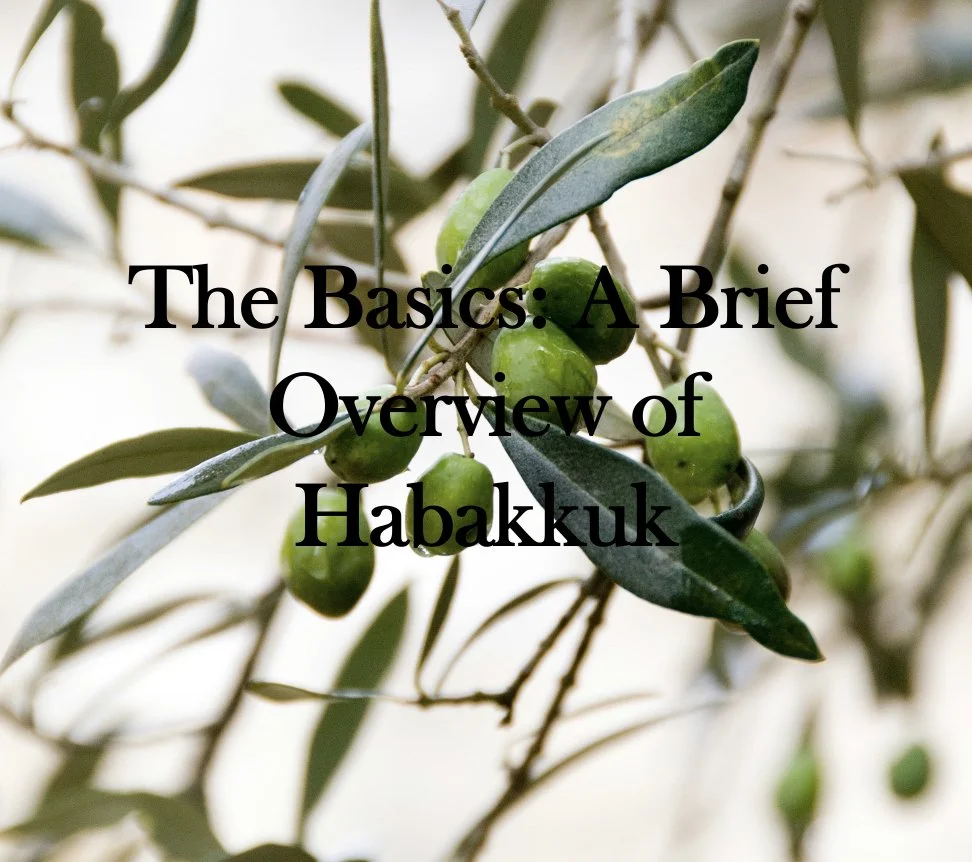The Basics: A Brief Overview of Habakkuk
The Basics course is designed to help brothers and sisters in Christ, who have a desire for a brief study over each of the books of the Bible. While being more than just a timeline, it is designed to give a person a more realistic overview of the entire Bible. As well as pointing out different highlights along the way. Imagine riding in a car and seeing exit signs for a town. Each sign gives a brief glimpse of what is inside, while if you wanted to thoroughly investigate the town you would have to take the exit. This series is a collected work of the books of the Bible while continuing to drive past each of the exits. I would encourage you to take any exit and allow the Lord God to direct your path to where He would guide.
The Bible is written in 66 different books. Each one is unique on its own but designed to be with its other collected works.
Cautionary Note: This work is not to argue for the authenticity of the Bible nor is it to argue over the mechanics of how God used man to write His Words. This is designed as an overview for someone to review the book in passing. Nevertheless, we here at Mill House Ministries believe that the Bible is without error and was written by God, through His divine attributes, through man.
These overviews are sequenced in the below fashion. Each overview is designed to flow in unison.
1.) Introduction
2.) Who wrote it
3.) When did they write it
4.) Key topics
5.) Key sections
6.) Books that interact with each other
7.) Analysis of the Book
As previously stated, if you find yourself drawn to one of these books, please take the time and see what God is wanting to show you in that book.
BASICS COURSE:
Habakkuk
INTRODUCTION:
The book of Habakkuk describes the immediate judgement of God against the Jewish people, however the book also describes the future judgement of God on a larger scale during the seven year tribulation.
WHO WROTE IT:
The book of Habakkuk is authored by Habakkuk. Dr. Chuck Swindoll helps shed some light on Habakkuk, “We know little of Habakkuk beyond the two mentions of his name in this book of prophecy. Both times, he identified himself as “Habakkuk the prophet” (Habakkuk 1:1; 3:1), a term that seems to indicate Habakkuk was a professional prophet. This could mean that Habakkuk was trained in the Law of Moses in a prophetic school, an institution for educating prophets that cropped up after the days of Samuel (1 Samuel 19:20; 2 Kings 4:38). Habakkuk also could have been a priest involved with the worship of God at the temple. This assumption is based on the book’s final, psalm-like statement: “For the choir director, on my stringed instruments” Habakkuk 3:19.
WHEN DID THEY WRITE IT:
Biblical scholars and historians place Habakkuk’s book being written around 609-598 B.C. This was during the time of King Jehoiakim.
KEY TOPICS:
The key topics of Habakkuk is judgement on Judah and God’s judgement in the end times.
KEY SECTIONS:
The book can be separated into three parts. First, a discussion of Habakkuk and God regarding the current state of Jewish people and how God was going to deal with them in the soon future. The second part describes later years judgement that will come, and the final third section is a hymn to remind us to have faith.
BOOKS THAT INTERACT WITH EACH OTHER:
When quickly looking at Habakkuk, a reader might think to assume Habakkuk does not interact with other books of the Bible. However, Revelation, Chronicles, Kings, and Daniel are all books that interconnect with God’s work through Habakkuk.
ANALYSIS OF THE BOOK:
This book is a treasure of end times prophecy and significant understanding on how God has orchestrated events. If you have ever wondered how the Babylonian empire rose to prominence so quickly, Habakkuk would be a book to read. If you are doing a study on eschatology (the study of last things), this would be on the syllabus. But most importantly, at its fundamental core, Habakkuk sheds light on a relationship we need to have with Christ. Habakkuk talks to the Lord. This is hard for many of us to comprehend. Habakkuk is not only praying, but conversing with the Lord. He is asking questions, He is explaining observations and even mourning to the Lord. What is the end result of such dialogue and relationship? A worship of the Lord as seen in verses 17-19. You see we were never meant to experience life alone. God wanted to have a relationship with us, and in Jesus Christ we can have that restored relationship. Habakkuk shows just how real this relationship can be.
Hold until relieved, our Blessed Hope is coming,
JL
